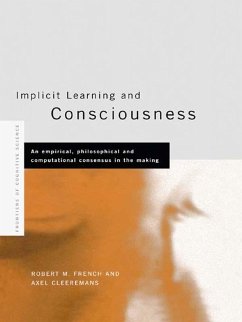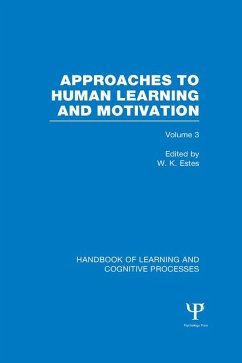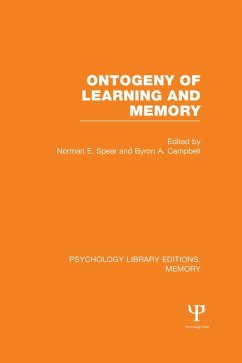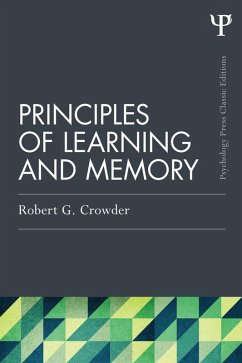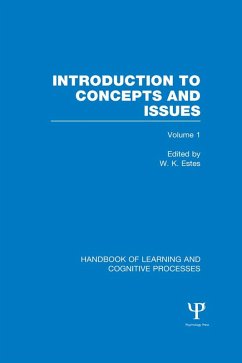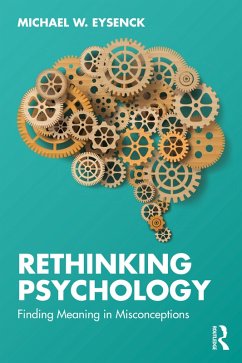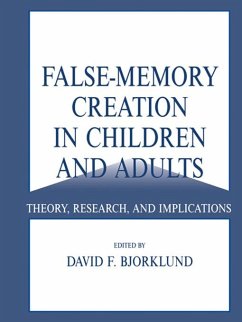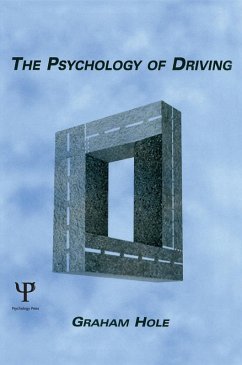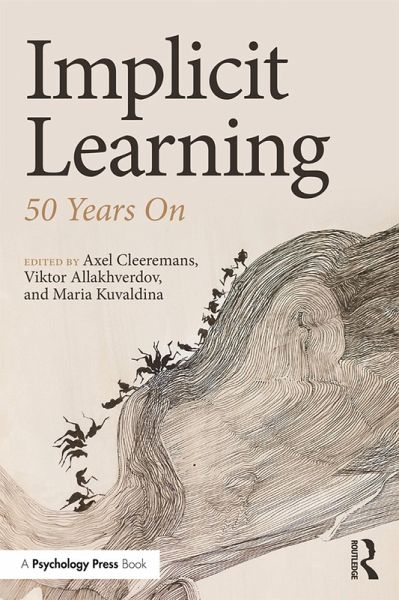
Implicit Learning (eBook, ePUB)
50 Years On
Redaktion: Cleeremans, Axel; Kuvaldina, Maria; Allakhverdov, Viktor
Versandkostenfrei!
Sofort per Download lieferbar
39,95 €
inkl. MwSt.
Weitere Ausgaben:

PAYBACK Punkte
20 °P sammeln!
Can we learn without knowing we are learning? To what extent is our behavior influenced by things we fail to perceive? What is the relationship between conscious and unconscious cognition? Implicit Learning: 50 Years On tackles these key questions, fifty years after the publication of Arthur Reber's seminal text. Providing an overview of recent developments in the field, the volume considers questions about the computational foundations of learning, alongside phenomena including conditioning, memory formation and consolidation, associative learning, cognitive development, and language learning...
Can we learn without knowing we are learning? To what extent is our behavior influenced by things we fail to perceive? What is the relationship between conscious and unconscious cognition? Implicit Learning: 50 Years On tackles these key questions, fifty years after the publication of Arthur Reber's seminal text. Providing an overview of recent developments in the field, the volume considers questions about the computational foundations of learning, alongside phenomena including conditioning, memory formation and consolidation, associative learning, cognitive development, and language learning.
Featuring contributions from international researchers, the book uniquely integrates 'Western' thinking on implicit learning with insights from a rich Russian research tradition. This approach offers an excellent opportunity to contrast perspectives, to introduce new experimental paradigms, and to contribute to ongoing debates about the very nature of implicit learning.
Implicit Learning: 50 Years On is essential reading for students and researchers of consciousness, specifically those interested in implicit learning.
Featuring contributions from international researchers, the book uniquely integrates 'Western' thinking on implicit learning with insights from a rich Russian research tradition. This approach offers an excellent opportunity to contrast perspectives, to introduce new experimental paradigms, and to contribute to ongoing debates about the very nature of implicit learning.
Implicit Learning: 50 Years On is essential reading for students and researchers of consciousness, specifically those interested in implicit learning.
Dieser Download kann aus rechtlichen Gründen nur mit Rechnungsadresse in A, B, BG, CY, CZ, D, DK, EW, E, FIN, F, GR, HR, H, IRL, I, LT, L, LR, M, NL, PL, P, R, S, SLO, SK ausgeliefert werden.




